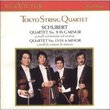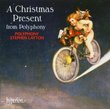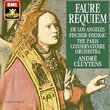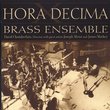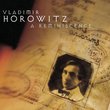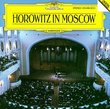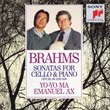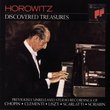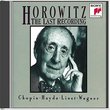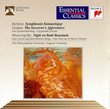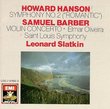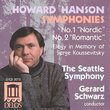| All Artists: Sergey Rachmaninov, Fritz Reiner, RCA Victor Orchestra, RCA Victor Symphony Orchestra, Vladimir Horowitz Title: Horowitz Plays Rachmaninoff/Concerto for Piano in Dm; Sonata for Piano No2/Vladimir Horowitz, Pianist Members Wishing: 1 Total Copies: 0 Label: RCA Release Date: 8/10/1989 Genre: Classical Styles: Ballets & Dances, Polkas, Forms & Genres, Concertos, Sonatas, Historical Periods, Modern, 20th, & 21st Century Number of Discs: 1 SwapaCD Credits: 1 UPC: 078635775426 |
Search - Sergey Rachmaninov, Fritz Reiner, RCA Victor Orchestra :: Horowitz Plays Rachmaninoff/Concerto for Piano in Dm; Sonata for Piano No2/Vladimir Horowitz, Pianist
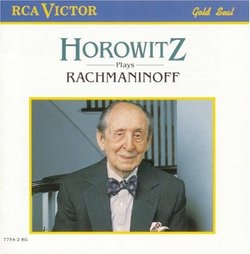 | Sergey Rachmaninov, Fritz Reiner, RCA Victor Orchestra Horowitz Plays Rachmaninoff/Concerto for Piano in Dm; Sonata for Piano No2/Vladimir Horowitz, Pianist Genre: Classical
Yes, Virginia, Rach 3 existed before David Helfgott and Shine. Vladimir Horowitz made a recording in 1951 that continues to be the delight and despair of every pianist, notwithstanding standard cuts and minor, nerve-induce... more » |
Larger Image |
CD DetailsSynopsis
Amazon.com Yes, Virginia, Rach 3 existed before David Helfgott and Shine. Vladimir Horowitz made a recording in 1951 that continues to be the delight and despair of every pianist, notwithstanding standard cuts and minor, nerve-induced inaccuracies. The 1980 Second Sonata is looser but no less intense than Horowitz's storied 1968 CBS version, while the short pieces ooze with sex: even the Polka! --Jed Distler Similar CDs
Similarly Requested CDs |
CD ReviewsHorowitz's Finest Rachmaninoff Hank Drake | Cleveland, OH United States | 04/11/2000 (5 out of 5 stars) "Vladimir Horowitz made three "official" recordings of Rachmaninoff's formidable Third Concerto. There are wonderful things in the 1930 recording with Coates, but that performance was severely cut. The 1978 version with Ormandy is also marvelous in its own way, but this 1951 studio recording with Reiner is the probably Horowitz's high water mark in this piece. There are a few cuts here, but not as severe as the version with Coates or Rachmaninoff's 1939 recording with Ormandy. Reiner is a sympathetic collaborator and draws some virtuoso playing from the pickup orchestra. The recording balance favors the piano, but Horowitz dazzling virtuosity and clarity deserve to be highlighted. On the whole, this is my favorite Rachmaninoff Third on CD. The solo pieces were recorded live later in Horowitz's career. Personally, I prefer the lithe, panther-like 1968 recording of the Rachmaninoff Sonata over this brooding version from 1980--but I wouldn't want to be without either recording. The G Major Prelude, recorded in 1977 is more lovingly played here than the more casual 1986 version recorded in Moscow. The E-Flat Minor Moment musical is electrifying in a way that could be only termed Horowitzian. Rachmaninoff's Polka was a favorite Horowitz encore, and his timing of the two "blues" chords in the coda brings a murmur of amusement from the audience. The sound here is a bit hard and airless, but a substantial improvement over the LP. This album is a must for piano lovers." Horowitz Electrifies Yet Again Hank Drake | 07/30/1999 (5 out of 5 stars) "The legendary Vladimir Horowitz, poet laureate of the piano and beloved cultural icon, here performs his favorite repetoire: Rachmaninoff. This CD has all the "essentials": the intense, difficult and transcendental 2nd Sontata (modeled closely after the 2nd Sonata of Chopin); the lyricism of the smaller pieces: the G major Prelude is made of glimmers and whispers, the Ebm Musical Moment is sad, whirling, complex, and elegiac, and the Polka de V.R. is witty, intelligent, playful, and completely musical. Then we come to the real blockbuster of this CD: the infamous 3rd Concerto in D minor, Op. 30. Horowitz recorded this many times from 1930 to 1978, but the 1951 recording here is the most revered. It has nearly homicidal voltage, an explosion of incredible pianism, beauty, romance, adventure, and nail-biting excitement. Even after many listens, something about this recording leaves you breathless and utterly thrilled. This CD is an excellant testament to Horowitz and Rachmaninoff, and is a must-buy for any lover of good piano music." Horowitz's property C. Pinheiro Jr. | S�o Paulo, Brazil | 03/23/2005 (5 out of 5 stars) "I'm sorry to contradict the reviewer Oregonscientist, but the 1941 Rach 3 with Barbirolli - AND NOT Martha Argerich's - is the fastest on record. In fact, Horowitz here plays faster than Argerich in all the most virtuosic passages, and much faster in the climactic end. So, it's exactly the opposite of what the reviewer said: Argerich is the one who cannot equal Horowitz's speed and power (not to mention dynamic range, in which Horowitz puts the Argentine pianist to shame), and she knew it: my compatriot Nelson Freire, also a superpianist and one of Argerich's closest friends, once said in an interview that the two of them wouldn't miss a Horowitz concert if they happened to be around and could get a ticket, because they considered him the most extraordinary pianist of all time. And Rach 3 was really Horowitz's property."
|

 Track Listings (9) - Disc #1
Track Listings (9) - Disc #1